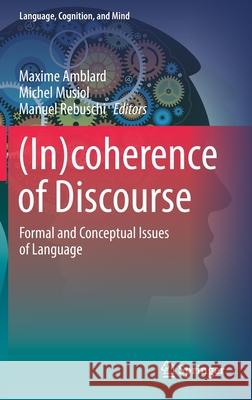(In)Coherence of Discourse: Formal and Conceptual Issues of Language » książka
topmenu
(In)Coherence of Discourse: Formal and Conceptual Issues of Language
ISBN-13: 9783030714338 / Angielski / Twarda / 2021 / 183 str.
Kategorie BISAC:
Wydawca:
Springer
Seria wydawnicza:
Język:
Angielski
ISBN-13:
9783030714338
Rok wydania:
2021
Wydanie:
2021
Numer serii:
000777778
Ilość stron:
183
Waga:
0.45 kg
Wymiary:
23.39 x 15.6 x 1.27
Oprawa:
Twarda
Wolumenów:
01
Dodatkowe informacje:
Wydanie ilustrowane











